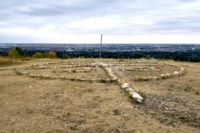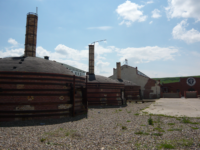WWF establish fund for Indigenous Protected and Conserved Areas
By Lethbridge Herald on December 28, 2022.
The World Wildlife Fund (WWF) has announced a new fund for Indigenous communities in considering, establishment, and stewardship of Indigenous Protected and Conserved Areas (IPCA).
Earlier this month, Megan Leslie, president and CEO of WWF-Canada, announced a new Indigenous Protected and Conserved Area Support Fund. Funds will grant contracts between $50,000 to $150,000 per year up to three years, supporting Indigenous communities and organizations as they consider, establish, or maintain IPCAs.
“To halt and reverse biodiversity loss by 2030 and secure the climate benefits of healthy ecosystems, Indigenous communities that choose to engage in Indigenous Protected and Conserved Area designation processes require a wide range of resources,” said Leslie in a press release. “I’m thrilled to announce this fund, which is designed to be flexible and responsive in order to best serve and support Indigenous stewardship of their lands and waters.”
IPCAs will be defined and managed by Indigenous communities, and stewarded through Indigenous laws and knowledge systems. In the wake of the COP15 UN biodiversity summit, support for IPCAs will be increasingly important, as countries strive to protect 30-percent of the planet while upholding the United Nations Declaration on the Rights of Indigenous Peoples.
The WWF states modern-day protected areas in Canada must be built on a rights-based approach. One that takes into account this knowledge, governance structures and priorities of Indigenous peoples. IPCAs will help support halting and reversing biodiversity loss while providing a wide array of community benefits.
ICPAs are seeing a growing number of efforts underway. The Cumberland House Cree Nation declared formal protection in June 2021 for the Kitaskīnaw, Saskatchewan River Delta, under Indigenous law and Thaidene Nëné, Land of the Ancestors, in Dënesųłiné Yati, establishing an IPCA spanning 26,000 square kilometers of boreal forest and tundra in the Northwest Territories.
The WWF-Canada recognizes that no area should be designated for protecting wildlife habitat and biodiversity, fighting climate change, and providing access to natural beauty and recreation without full agreement and resources for the Indigenous nations and communities holding rights to those lands and waters
8-7




